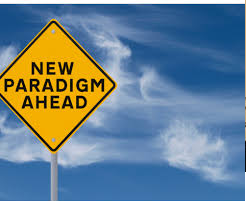
Arquivo para October 15th, 2020
Politics and the crisis of human thought
The idea that there is a judgment of taste, about which Kant also sentenced, that one cannot “argue”, but rather fight and reach an agreement, we know him well in everyday life, and Hannah Arendt already pointed this out in the 50s , in a situation still unknown, we believe that this or that would have judged the situation correctly or wrongly, so it is not a topic of today, but since relativism, the absence of values and parameters was installed in society as a whole.
sentenced, that one cannot “argue”, but rather fight and reach an agreement, we know him well in everyday life, and Hannah Arendt already pointed this out in the 50s , in a situation still unknown, we believe that this or that would have judged the situation correctly or wrongly, so it is not a topic of today, but since relativism, the absence of values and parameters was installed in society as a whole.
If the function of prejudice is to defend the man who judges both the freedom to do so and not to openly expose himself to each reality encountered and hence to have to confront it thinking, so the worldviews and ideologies seem to fulfill this task, a since they protect them from all experience, since supposedly all the real would be predicted in them in some way, but this was what defended scientific neutrality and that it is possible to find “scientific” solutions in each case.
This lack of parameter in the modern world, the impossibility of judging what happened and happens every day according to fixed and accepted criteria by everyone, of subjecting them to a known general scheme, is because there is a difficulty closely linked to this, of indicating principles of action for what will happen, is uncertain.
What’s brilliant about Hannah Arendt, and also found in many other contemporary humanists like Edgar Morin and Hans Georg Gadamer, is that she understands the world (human-social) not the natural world (of life, animals, for example) , nor of the universe (the physical world), what she is trying to define is a new “social” (intertwined, we would say in current terms in network), and for her this human, in this sense, is a social being.
The space between men that is the world would not make sense without men themselves, just as the universe or nature without men would be a contradiction in itself, without this meaning that the world and the catastrophes that occur in it would be reduced to one happening purely human, let alone that it was something that reduced to something that happened to “man” or to the nature of man.
One could easily object to being the world that is spoken of with only one world of men, this is the result of human doing and acting, as they wish, these capacities belong to the nature of man, and when they fail, nature should not be changed before man can think about changing the world?
It is from this view that Hannah Arendt will think the meaning of politics, this question is very old, much more than one thinks, Plato reproached Pericles when saying that the Athenians would not be better after they died, and this will be the subject of Hannah Arendt in fragment 3b.

